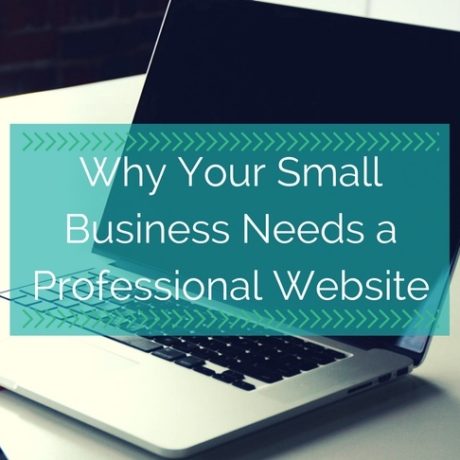Today you can have a website for pretty much anything—from crowdfunding campaigns to pet hamster fan pages. But for some reason, many small businesses have been slow to get online, even though websites have been around for over 25 years!
Fortunately, the number of small businesses with professional websites is increasing steadily, from a relative handful ten years ago to about two-thirds today (the numbers vary, depending on the country and survey you look at). Yet that still leaves thousands of businesses behind the times. What’s the holdup?
In surveys, many business owners say they don’t have the skills, the time, or the money to build a business website. But a surprising number say that their business doesn’t need a website, either because it’s not required, or because they use social media instead.
That’s why this post is going to look at some specific reasons why your small business should have its own website. If you’re a small business owner who is still on the fence, read on!
Why have a website? Our top reasons:
A professional website meets customer expectations:
Now more than ever, your customers expect to be able to find information about your company online. In fact, most consumers now do research online before they make a purchase, even if it’s to buy something from their local shop. If you don’t have a website, you’re sending a message that your business is stuck in the Dark Ages, or that you’re not interested in finding new customers—and neither of these are messages that you probably want to be sending.
They don’t need a lot of info or a complicated, multi-page encyclopedia about you. Just a few simple pages are usually more than enough, as long as it has basic information that’s tailored to their needs and very easy to find. And, most importantly, it should be accurate and up-to-date, since out of date info is one of people’s top pet peeves when it comes to using local business websites.
You can control information and branding:
User reviews and comments are great, but shouldn’t you have the final say about what information about your company is presented to the public? Having a website for your company instantly creates an official presence on the internet so that you don’t have to depend on others speaking for you. And you can make it look exactly the way you want, with your own logo, colors, and fonts.
A website is more affordable than traditional advertising:
Many small businesses rely on Yellow Page ads and listings to get their name out there. No one is going to tell them to remove their listings, but is purchasing an ad in the ever-shrinking and increasingly expensive directory the best use of funds? Website costs are decreasing every year and have a wider reach.
A website is easier to keep up to date:
If you tried a website years ago, you might have some bad memories from the experience. It probably took weeks or months for a developer to build it, and then you couldn’t make any changes yourself. Simple things like updating store hours could take forever, so your information was outdated. And changing colors or uploading photos? Good luck!
Today it couldn’t be more different. With Jimdo, all you need to do is log in to your website and click on the part you’d like to change. You’ll be able to edit text, add photos, or change parts of your design. Making updates is so easy, you can even do it from your phone via our iOS and Android Apps.
You can find existing and potential customers:
Not only are all of these people able to see your website, but they can also interact with you through it. Using email, contact forms, guest books, and chat apps, you can talk with customers from the other side of the globe, get feedback about your new products and services, or even ship orders thousands of miles away. And people might come to your website from all different places, using search engines or Google Maps.
A business website levels the playing field:
Although the budgets and project scopes vary, there is no real difference between the website of a Fortune 500 company and that of a freelancer working from the couch in their living room. A clean and professional looking website completely levels the playing field as you can present yourself and your company any way that you like. If your company is able to help meet the needs of a customer, why do they need to know if your team is 3 people or 300?
Does my business need a website if I’m on social media?
Lots of business owners assume that having a social media profile for their business is enough. Maybe you already have a Facebook page and some pretty good reviews on social media (or at least no one has called you the “worst restaurant ever”). That’s great.
But there are some problems with this strategy. First, you’ll always be dependent on the social media platform you choose. Algorithms change, rules change, and what’s working one day might not work a few weeks from now (as many businesses who depended on Facebook have recently learned). If you have a website, it belongs to you, and you control the content and the message. Part of the reason you started your own business is so that you don’t have to follow other people’s rules—so why would you just do what a social media platform tells you to?
Trends change, too. If your customers are on Twitter today, they might be on Snapchat or a new platform that none of us have even heard of tomorrow. As people switch from one tool to the next, your website acts as an anchor. No matter what platform customers prefer, they can always find your website in the same place, available to everyone


Leave a Reply